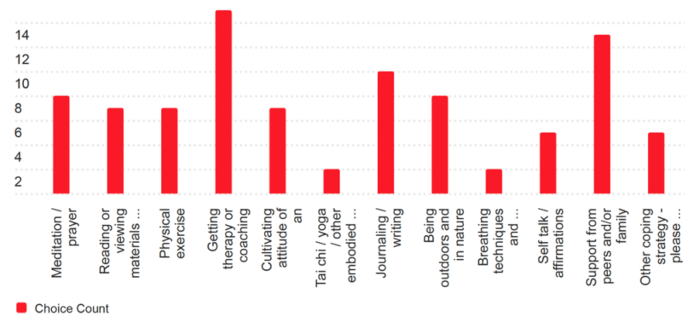Cognitive difficulties
Post-psychedelic difficulties can manifest in various forms, including various cognitive challenges. For example:
Confusion, Problems with Thinking Clearly and/or Memory Issues
Some people experience confusion and disorientation after their psychedelic trips. Individuals may find it challenging to think or speak linearly, feeling disoriented and uncertain about when the confusion will stop. Additionally, some individuals experience post-psychedelic forgetfulness or memory issues that can impact one’s ability to recall information or events accurately, disrupting daily life.
For most individuals, difficulties with thinking clearly and confusion persist for up to 6 months after the psychedelic experience. Of those affected, the majority report these challenges as moderately severe (60%), with a significant portion experiencing them as very severe (28%), and a smaller fraction finding them not severe (11%).
“I couldn’t think or speak linearly for at least a few days, or at least it felt that way... Everything felt confusing and I didn’t know if or when it was going to end... I didn’t understand what was happening to me, and did not have any language for it.”
Intrusive, Ruminative, or Obsessive Thoughts
Some individuals experience intrusive, ruminative, or obsessive thoughts following a psychedelic trip. These thoughts can be persistent and unsettling, causing significant distress.
“After my trip was over, I felt shaken up for days/weeks and wondered if I had gone crazy. Thoughts like this were going around in my head during those weeks: ‘What really IS “crazy”?’ ‘Whatever the majority thinks is not suitable behavior?’ ‘Am I “crazy” for not feeling that I want to adapt to this world?’ ‘Isn’t it a crazy thing to be well-adapted to a crazy world?’ ‘Isn’t everyone ELSE crazy then?’ ‘Crap, that’s such a crazy-person thing to say!’ Round and round it went.”
Difficulty with Concentration and/or Making Decisions
Some individuals find it hard to focus on tasks or maintain attention, affecting work, studies, and personal projects, leading to decreased productivity. Further, trouble with decision-making can also arise, where individuals struggle to evaluate options and make choices.
Coping Strategies
To cope with cognitive difficulties, creative expression - such as writing, painting, or music - can provide an outlet for processing complex thoughts and emotions, offering clarity and relief. Additionally, mindfulness practices, such as meditation and grounding exercises, can enhance concentration and decision-making abilities. For sleep difficulties, practices such as maintaining good sleep hygiene and engaging in regular physical activities can be particularly effective. Sleep hygiene includes establishing a consistent sleep schedule, creating a restful environment, and avoiding stimulants before bedtime.
Recent research indicates that individuals grappling with issues related to clear thinking and confusion have found therapy or coaching to be beneficial, along with support from peers and family, as well as journaling or writing.

Here are some practices people generally have reported to find helpful to cope with challenging psychedelic experiences:
- Speaking to friends and family or attending a peer support group
- Speaking to a therapist, especially one who is familiar with psychedelics and psychedelic difficulties
- Cognitive practices like compassionate self-talk, cognitive distancing, and especially meditation and prayer
- Embodied self-care practices like exercise, yoga, walking in nature or body relaxation
- Finding useful information online and in books (e.g. the work of Stanislav Grof’s or “Breaking Open: Finding a Way Through Spiritual Emergency” by Jules Evans and Tim Read)
- Journaling
- Engage in creative activities like writing, art-making, or music
- Some people find medication helpful. Additionally, although controversial and risky, some may find that a subsequent altered state experience can help resolve their difficulties. However, this method carries obvious risks and should be approached with caution.
It is essential to explore and integrate these strategies in a way that resonates with personal preferences and needs, seeking support from professionals or trusted sources as needed.
Further resources
For further information and support, the following web resources and support services are recommended:
- Perception Restoration Foundation: A charity to offer information and support to those experiencing HPPD.
- CPEP runs a free monthly online support group for people experiencing post-psychedelic difficulties on the last Sunday of every month.
- Here's an article by CPEP member Ed Prideaux about his own experience of HPPD
- This is a useful YouTube video about HPPD
- Psychedelic Clinic in Berlin: Clinic at Charité – Universitätsmedizin Berlin offering immediate support. Click here to get in touch.
- Psychedelic Support: Connect with a mental healthcare provider trained in psychedelic integration therapy and find community groups that can provide support.
- Fireside Project: The Psychedelic Support Line provides emotional support during and after psychedelic experiences.
- Institute of Psychedelic Therapy: The Institute for Psychedelic Therapy offers a register of integration therapists.